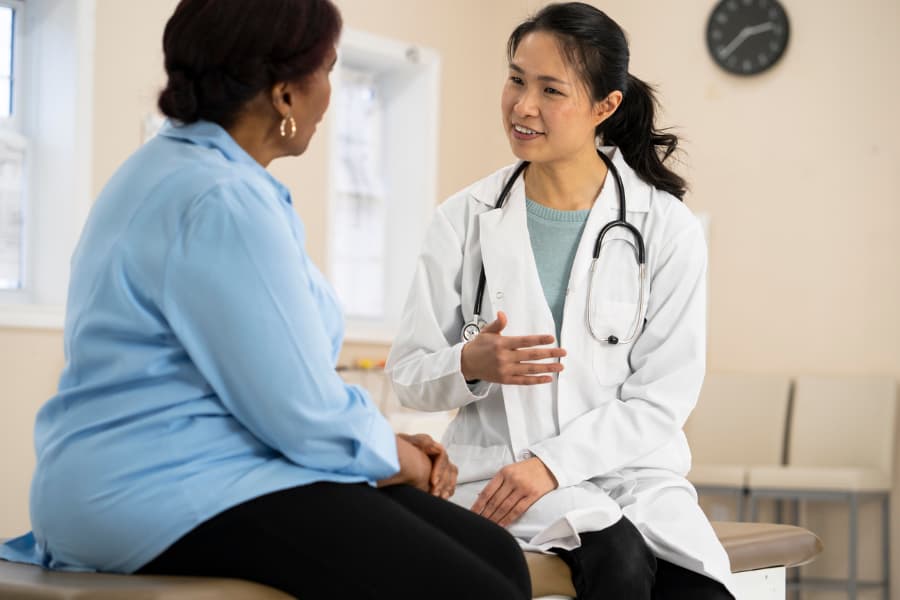Understanding Leukemia Symptoms in Connecticut, Maryland, and New Jersey
If you or a loved one is at risk of developing leukemia, understanding the symptoms can help you know when to seek help from an oncologist.
Regional Cancer Care Associates is recognized as one of the top facilities in Connecticut, Maryland, and New Jersey for the diagnosis and treatment of leukemia. Our experienced oncologists are skilled in identifying leukemia symptoms and delivering the high-quality care patients deserve.

General Symptoms
Patients with leukemia will often experience general symptoms caused by the body’s efforts to expel harmful cells. These can include:
- Weight loss, especially when the patient is not trying to lose weight or has made no recent lifestyle or dietary changes
- High fevers and night sweats
- Loss of appetite, nausea, and general disinterest in eating
While these are all good indicators that the patient is sick, they are not specifically tied to leukemia. Many of them are shared between multiple common cancers and other diseases and should not be treated as a definitive identifier.
Symptoms of Low Blood Count
Leukemia is a type of cancer that attacks the bone marrow, where blood cells are made. The cancer results in the formation of mutant cells that begin to crowd out the normal ones. As a result, one significant sign of leukemia is a low red blood cell count and the following symptoms:
- Tiredness and fatigue, even when well-rested
- Dizziness or lightheadedness
- Shortness of breath, especially without physical exertion
- Clammy, pale, or bluish skin
- Infections or mild illnesses that don’t heal or continuously return
- Abnormal bruises or red and purple spots on the skin
- Frequent or severe nosebleeds, bleeding gums, heavy menstruation, or other forms of excessive bleeding
Low blood counts are easily detectable through a blood test. Keep in mind, however, that low blood counts are not unique to leukemia and may be caused by a different blood or circulatory disorder.
Special Symptoms
Some symptoms of leukemia are more directly tied to the illness and not to a general immune response or insufficient blood cells. These symptoms can include:
- Swollen abdomen: Leukemia cells sometimes accumulate in the liver and spleen, making these organs larger. This can express itself as swelling or as a stomach that feels full despite minimal food intake.
- Enlarged lymph nodes: A swollen or enlarged lymph node can be felt as a strange lump under the skin. Swollen lymph nodes are most noticeable in the groin and armpits, and on the sides of the neck.
- Bone or joint pain: Leukemia normally is restricted to the marrow but can become painful if cells build up inside a joint or near the surface of the bone.
As Leukemia Spreads
Very rarely, leukemia can spread to other organs in the body and result in symptoms you’d normally expect from disorders and illnesses that target those areas. For example, leukemia that reaches the brain or spinal cord can cause headaches, seizures, trouble with balance, blurred vision, or numbness in the face. Leukemia in the chest may cause fluid buildup and difficulty breathing.
Diagnosing Leukemia
If you or a loved one is experiencing any of these symptoms, consult a doctor immediately. An expert can confirm their cause and direct you to a specialist for treatment. For residents in Connecticut, Maryland, and New Jersey, Regional Cancer Care Associates offers leukemia diagnosis and treatment at 31 locations and provides skilled, compassionate care that restores quality of life. Visit or call us today.
